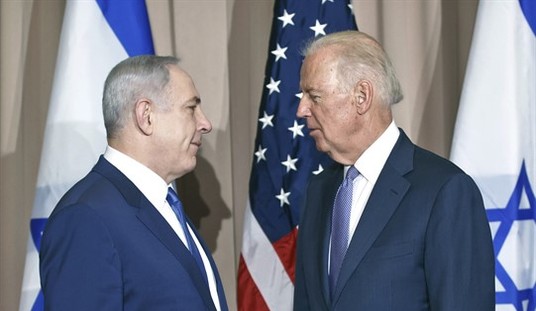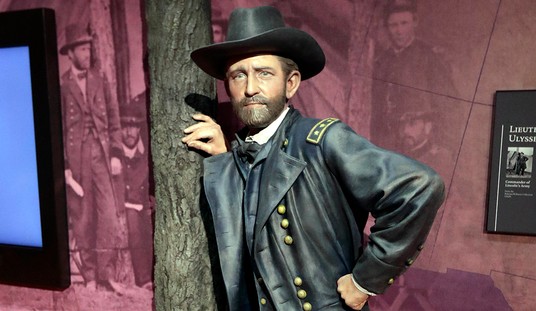A Washington Post report that the US has decided to deploy ground forces to Poland, ostensibly to act as a tripwire to deter further Russian threats, raises some interesting issues.
Poland and the United States will announce next week the deployment of U.S. ground forces to Poland as part of an expansion of NATO presence in Central and Eastern Europe in response to events in Ukraine. That was the word from Poland’s defense minister, Tomasz Siemoniak, who visited The Post Friday after meeting with Defense Secretary Chuck Hagel at the Pentagon on Thursday.
Siemoniak said the decision has been made on a political level and that military planners are working out details. There will also be intensified cooperation in air defense, special forces, cyberdefense and other areas. Poland will play a leading regional role, “under U.S. patronage,” he said.
The first is why the story was leaked from a Polish source in an administration that almost always rushes to announce moves it wants to depict as decisive. It is almost as if Warsaw wanted to pre-empt Obama before he could have second thoughts.
The second issue is that Poland will be taking the lead “under US patronage”. Obama, as usual, will be leading from behind. The Washington Post story quotes the Poles as confessing that “US patronage” will be a hollow unless America re-arms. Here is how the WaPo put it:
But the defense minister also said that any immediate NATO response to Russian aggression in Ukraine, while important, matter less than a long-term shift in the defense postures of Europe and America. The United States, having announced a “pivot” to Asia, needs to “re-pivot” to Europe, he said, and European countries that have cut back on defense spending need to reverse the trends.
“The idea until recently was that there were no more threats in Europe and no need for a U.S. presence in Europe any more,” Siemoniak said, speaking through an interpreter. “Events show that what is needed is a re-pivot, and that Europe was safe and secure because America was in Europe.”
Needless to say Tomasz Siemoniak can only be speculating when addressing issues of overall US strategy. However, Poland’s musings can be understood as a statement of hope rather than fact. Poland is saying if the US revives its strategic posture then Europe can be defended. It’s a conditional, if-then. The converse of that — the “else” — is of course obvious to all, though perhaps I should not say “all”.
James Jeffrey, a U.S. ambassador to Iraq in the Obama administration, actually proposed a tripwire as far forward as Ukraine before it was overtaken by events. Writing in the Washington Post only last week Jeffrey said:
The best way to send Putin a tough message and possibly deflect a Russian campaign against more vulnerable NATO states is to back up our commitment to the sanctity of NATO territory with ground troops, the only military deployment that can make such commitments unequivocal. …
While examples of effective ground force “tripwires” date to the U.S. brigade in Berlin during the Cold War, the most relevant recent example is Kuwait after 1993. To deter Saddam Hussein from any new attack, the United States maintained a “heavy brigade package” of armor and other materiel to equip a force of 5,000 troops to be quickly flown in if needed. The United States and Britain also maintained fighter aircraft in Kuwait. All this, however, was not sufficient to fully deter Hussein. U.S. ground forces were deployed in 1994, 1996 and 1997-98. Even with equipment already deployed, it took time to fly the troops in, and the decisions required precious time for Washington and the Kuwaiti government to deliberate.
To deal with these issues, the Clinton administration finally stationed a small ground force in Kuwait, rotated from stateside units on six-month deployments. In a crisis, the thinking went, it would buy time for a full brigade to deploy and encourage rapid Kuwaiti deployment, possibly deterring a ground attack. In Operation Desert Fox in December 1998, the United States went with the force on the ground, rapidly reinforced by a Marine expeditionary unit, rather than wait for a brigade to deploy and thus signal its intentions to Hussein.
Tripwire strategies have a long history in Democratic administrations. The interesting thing about tripwire strategies is that they are not seriously intended to prevent the enemy from advancing. They are too small.
The purpose of a tripwire deployment is to make it impossible for Washington to retreat. Thus, a US brigade in Poland is not designed to keep Putin from moving forward. It’s designed to nail Obama to the ground, to keep him from running away.
Obama’s not going to get much help from the Western Europeans. Recently Max Fisher, writing in Vox, attributed Obama’s collapse in Ukraine to Europe. “Obama’s Ukraine plan relies on Europe, and that’s why it’s failing.” Soft power apparently has its limits. Europe can offer divisions of treaties, brigades of bureaucrats, entire fleets of human rights lawyers, and legion upon legion of quangos. But they are less than useful in this situation.
It is possible that Poland required the tripwire as a price for playing “a leading regional role”. Maybe Obama had run out of credit and Warsaw wanted a deposit before betting the farm. The tripwire is the deposit. Clearly, Poland is taking the principal geostrategic risk. They are betting the cavalry will come. But there’s always the chance it won’t. As one wag on Facebook said, “oh another country for Obama to lose.” If Poland is wrong it loses its freedom. If Obama is wrong he get’s to say “there will be costs” before an rapt audience of journalists.
In the short term however, and before Obama decides — if he ever does — on rebuilding forces, Putin has many options for mischief. The most obvious countermove is for Moscow to interrupt the northern supply route into Afghanistan. Or Putin might ask Syria and Iran to terminate their “negotiations” with president Obama. There’s a fourth option for mischief. Putin can declare himself threatened by the report of a US deployment so far east and move his actual border closer up to Poland itself by gobbling up more of Ukraine.
Odds are we are going to see some of those countermoves used against Obama.
The net effect will be to force Obama to do either do what Poland hopes — pivot to Europe — or clearly abandon it. Pivoting to Europe must leave the Pacific exposed. To cover all bases Obama will have to postpone his plan to fundamentally transform America into a welfare-type state and use that money to rebuild the military. Poland may be trying to hustle Obama into being decisive, but the president’s instincts have so far been against it. If there’s one thing Obama won’t do, it is stop the flow of goodies to his domestic constituencies. That is his power base and Obama may love domestic political power more than he loves Poland.
To underscore that reluctance the president delayed the Keystone XL pipeline yet again. “The Obama administration on Friday extended the review period on the Keystone XL pipeline, perhaps pushing back a final decision on the disputed project until after the Nov. 4 congressional elections. … environmental groups hailed it as a sign that the project will not move forward.”
If there was one non-kinetic way of showing resolve against Putin it would be ramping US energy production. Energy exports are the wellsprings of Putin’s power. If Obama wanted to beggar Putin, he would turn on the faucet. But he won’t. You might well ask: how serious is Obama about stopping Putin when he can’t even stand up to the Sierra Club? Twitter, always a source amusement these days, had a Tweet going: “Headlines. Putin invades Ukraine. Obama responds by invading Nevada.”
How would you like to be on the tripwire force?
[jwplayer config=”pjmedia_richardfernandez” mediaid=”36147″]
[jwplayer config=”pjmedia_richardfernandez” mediaid=”36149″]
Did you know that you can purchase some of these books and pamphlets by Richard Fernandez and share them with you friends? They will receive a link in their email and it will automatically give them access to a Kindle reader on their smartphone, computer or even as a web-readable document.
The War of the Words for $3.99, Understanding the crisis of the early 21st century in terms of information corruption in the financial, security and political spheres
Rebranding Christianity for $3.99, or why the truth shall make you free
The Three Conjectures at Amazon Kindle for $1.99, reflections on terrorism and the nuclear age
Storming the Castle at Amazon Kindle for $3.99, why government should get small
No Way In at Amazon Kindle $8.95, print $9.99. Fiction. A flight into peril, flashbacks to underground action.
Storm Over the South China Sea $0.99, how China is restarting history in the Pacific
Tip Jar or Subscribe or Unsubscribe









Join the conversation as a VIP Member